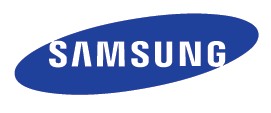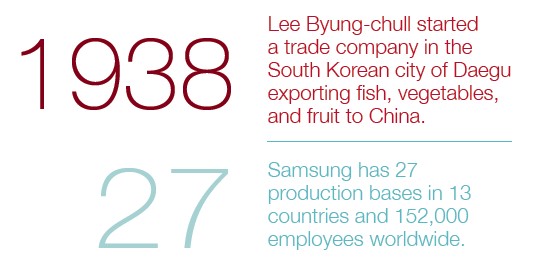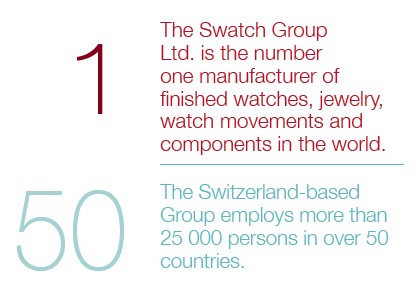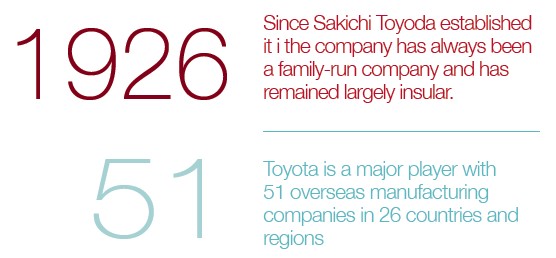Photo by Porapak Apichodilok from Pexels
Lebanon – M1 Group, Mikati Family
The M1 Group was co-founded by Taha A. Mikati and his brother Najib A. Mikati in the 1960s building the firm’s foundations in the construction industry. It is today a holding company for a number of international brands from retail to travel, real estate to oil & energy. The family-owned, Beirut-based company has an extremely diversified portfolio and is internationally present through its successful business ventures and investments worldwide.During Lebanon’s civil war in 1982, Najib and Taha founded Investcom, a telecommunications company operating in emerging markets. The company was bought by MTN Group Ltd., Africa’s largest mobile-phone operator, in 2006 which makes M1 Group today the second largest shareholder of MTN. MTN is present in 21 countries and serves 120 million people through a world class communication networks. Throughout the years, M1 Group made a great deal of acquisitions around the world to strengthen its international presence. M1 Includes Geneva-based Baboo airline, French fashion brand Faconnable, Luxembourg-based Avante Petroleum with corporate offices in Luxembourg and Switzerland, technical office in the United States and representative offices in Colombia and Mexico where its operations are located. The company also has a stake in Lebanon’s largest lender by assets; Bank Audi SAL-Audi Saradar Group. M1 is also the major shareholder of Royal Jordanian Airlines.
Besides running the M1, the multibillion-dollar holding company, the Mikati family are committed to a number of charitable associations in Lebanon and beyond. Their philanthropic activities include social, medical, academic and sport programs.
South Korea – Samsung Group, Lee Family
The Samsung Group is South Korea’s largest company and exporter and the 5th largest multinational corporation in the world. It was established by the Lee family who has been running it ever since.The Samsung Group’s beginnings go back to the year 1938 when Lee Byung-chull started a trade company with forty employees in the South Korean city of Daegu exporting fish, vegetables, and fruit to China. The company kept on growing to eventually become one of the largest companies in Seoul by 1949.
From 1958 onwards Samsung started to diversify its activities into other industries such as finance, media, chemicals and ship building. In 1969, Samsung Electronics was established. Today, Samsung Electronics is the world’s largest electronics company and a major player in the world’s electronics industry. It is best known for manufacturing the world’s best memory chips and flat screen televisions. It is also the second largest producer of mobile phones in the world after Nokia.
In the 1990’s Samsung began ton expand globally building factories in the US, Britain, Germany, Thailand, Mexico, Spain and China. Currently, Samsung has 16 products that have dominated the world’s market share with 27 production bases in 13 countries and 152,000 employees worldwide.
The conglomerate also includes Samsung Heavy Industries, the world’s number three shipbuilder, and Samsung Engineering & Construction, a major global construction company that built Burj Khalifa in Dubai, the tallest structure in the world after an 11-month bidding process. Samsung Group is also the leader in several other industries domestically, such as finance, chemicals, retail, and entertainment.
Switzerland – The Swatch Group, Hayek Family
In the early 1980s, Lebanese-born Nicolas G. Hayek was appointed to develop a strategy for the future of Swiss watchmakers ASUAG (Allgemeine Schweizerische Uhrenindustrie AG) and SSIH (Société Suisse pour l’Industrie Horlogère) that held a number of well-established Swiss watch brands. The two companies were facing severe competition from Japanese mass producers of cheap new electronic watches who flooded the market and affected the whole Swiss watch industry. Mr. Hayek, who was the Chief Executive Officer of Hayek Engineering, at the time recommended a number of critical steps to enable the recovery of the two companies. Under his leadership, many drastic changes were made and he played a key role in the revival of the Swiss watchmaking industry. He merged ASUAG and SSIH into SMH retaining the majority of the shares for the Hayek family and was then nominated to be the CEO of the company. Launching a low-cost, high-tech, and artistic «second watch» – the Swatch – was the idea that paved the way for The Swatch Group to become one of the most reputed watchmaker in the world.
Today, The Swatch Group Ltd. is the number one manufacturer of finished watches, jewelry, watch movements and components in the world. It is a strong, diversified industrial company that engages in significant development activities in microelectronics, micromechanics and telecommunication as well as in the automobile and service sectors.
The Switzerland-based Group employs more than 25,000 persons in over 50 countries. It also operates its own worldwide network of distribution organisations.
After the sudden death of Mr. Nicolas G. Hayek, Chairman and Delegate of the Board of Directors of The Swatch Group Ltd. on 28 June 2010, his daughter Dr. Nayla Hayek, became Chair of the Board of Directors of Swatch Group. Her brother Nick Hayek is the President of the Executive Group Management Board since 2003 and member of the Board of Directors since 2010. They are continuing the journey of Swatch Group started by her father and its valuable contributions to the Swiss watch industry.
Japan – Toyoda Group, Toyoda Family
Toyoda Group is a multinational conglomerate company headquartered in Japan. Since Sakichi Toyoda established it in 1926, the company has always been a family-run company and has remained largely insular with a board of directors that includes exclusively Japanese members.The company started as an automatic looms manufacturer and seller that revolutionised the Japanese textile industry. The company then expanded the scope of its business field to include textile machinery, automobiles, materials’ handling equipment, electronics, and logistics solutions. It has production bases in North America, Europe, and Asia as well as a worldwide sales network. The 1990’s marked the geographic expansion of the company by the very successful acquisitions and joint ventures that it undertook involving companies in the US, France, Switzerland, Sweden, Germany and others countries. This internationalization happened in addition to the joint ventures Toyota undertook with Japanese companies such as Sony Corporation.
Toyota Motors Corporation (TMC), founded by Kiichiro Toyoda in 1937 as the Automobile Department, remains the core business of the company with 8 million units of automobiles’ production in 2010. Toyota’s vehicles are sold in more than 170 countries and regions. TMC employs more than 300,000 people, 70,000 of them in Japan.
Internationalisation was accompanied by diversification, and today, Toyota is a major player in 13 business areas including housing, financial services, communications, marine and biotechnology with 51 overseas manufacturing companies in 26 countries and regions.
Tharawat Magazine, Issue 11, 2011























